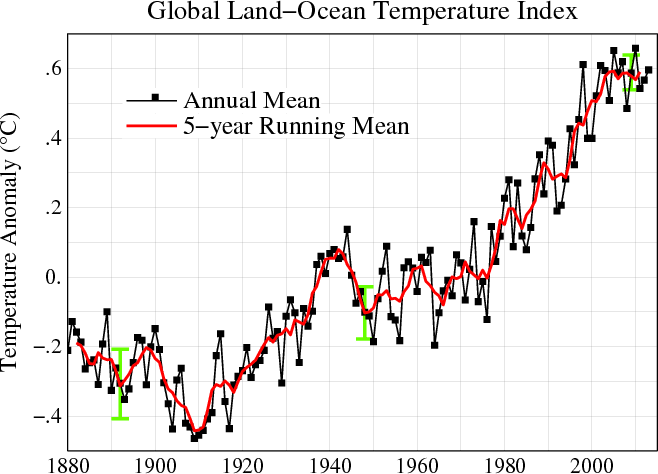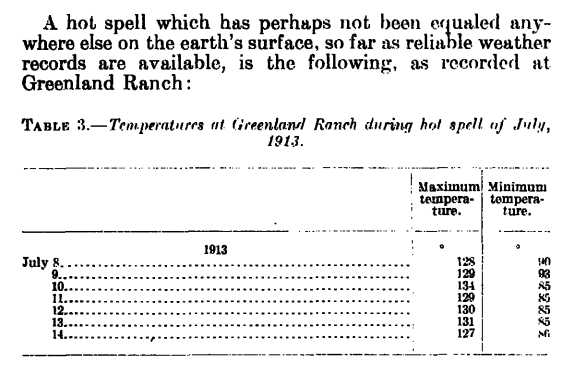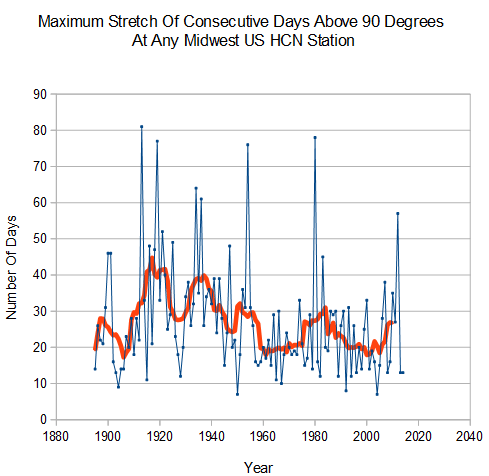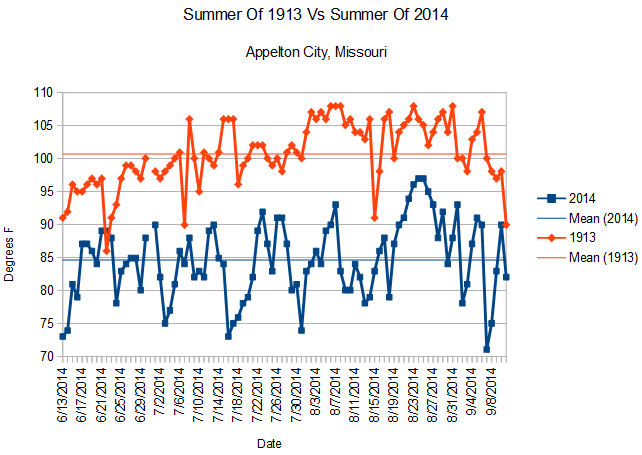According to Gavin, 1913 was one of the ten coldest years ever.
The summer of 1913 set the world’s record maximum temperature of 134 degrees on July 10.
The summer of 1913 also had the Midwest’s longest heatwave. Appleton City, MO was over 90 degrees for 81 consecutive days – from June 23 to September 11.
From June 13 to September 11 1913, Appleton City was over 90 degrees every day but one – and maximum temperatures averaged over 100 degrees. That summer averaged 17 degrees warmer than this past summer, which Gavin says was the hottest ever.






He cools the past, controls the present.
“He who cools …”
He who cools the past, warms the present.
That, too!
You simply don’t understand Steven. Gavin went back in his time machine and altered the weather then came back to make sure the data was correct. He just hasn’t yet faound all the data that needs to be changed to match the weather as he found it. 😉 Oh boy am I confused after that rambling.
I salute you Steven, as one of the few that can, and will, expose the fraudulent claims of the Alarmists.
Unfortunately, an awful lot of those Alarmists work for the U.S. government or control way too much of our MSM.
Every idiot know that there was much more jet exhaust and air conditioning exhaust in1913 that in 2014! More asphalt and concrete too. Especially so on farms, rather than airports. Thus leading climate scientists are totally justified when they cool the past and heat the present.
There is nothing wrong with a few expert adjustments to prove that the climate models are right. Doing what is necessary to validate a pre-determined conclusion is entirely consistent with the scientifc method, Every idiot knows that!
It reminds me of those students who would get something wrong
in labs, and rather than figure out what was wrong and redo the
test to get good results, they would instead fudge the data they
recorded so it would match what would have been expected if
they had not messed things up.
Personally I don’t think there are too many government scientists that ever went in a lab. I suspect they all got their degrees doing “dry labs”.
In the days of yore, that was called a drylab; in the postmodern era, it’s an essential tool of reanalysis.
Anecdotes! Snark presumed; I hope.
I see that you had a hot summer in 1913 at Appleton, but how about the annual mean and its five year running mean? If you did the same for all the HCN stations, your claim might be more persuasive.
Same thing